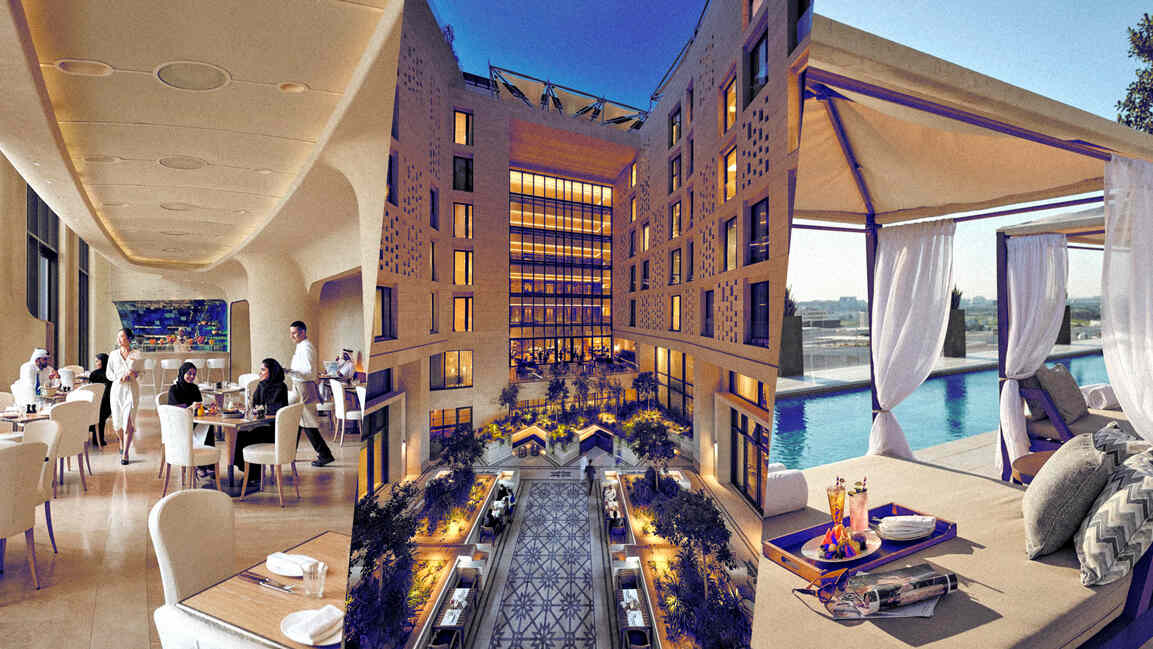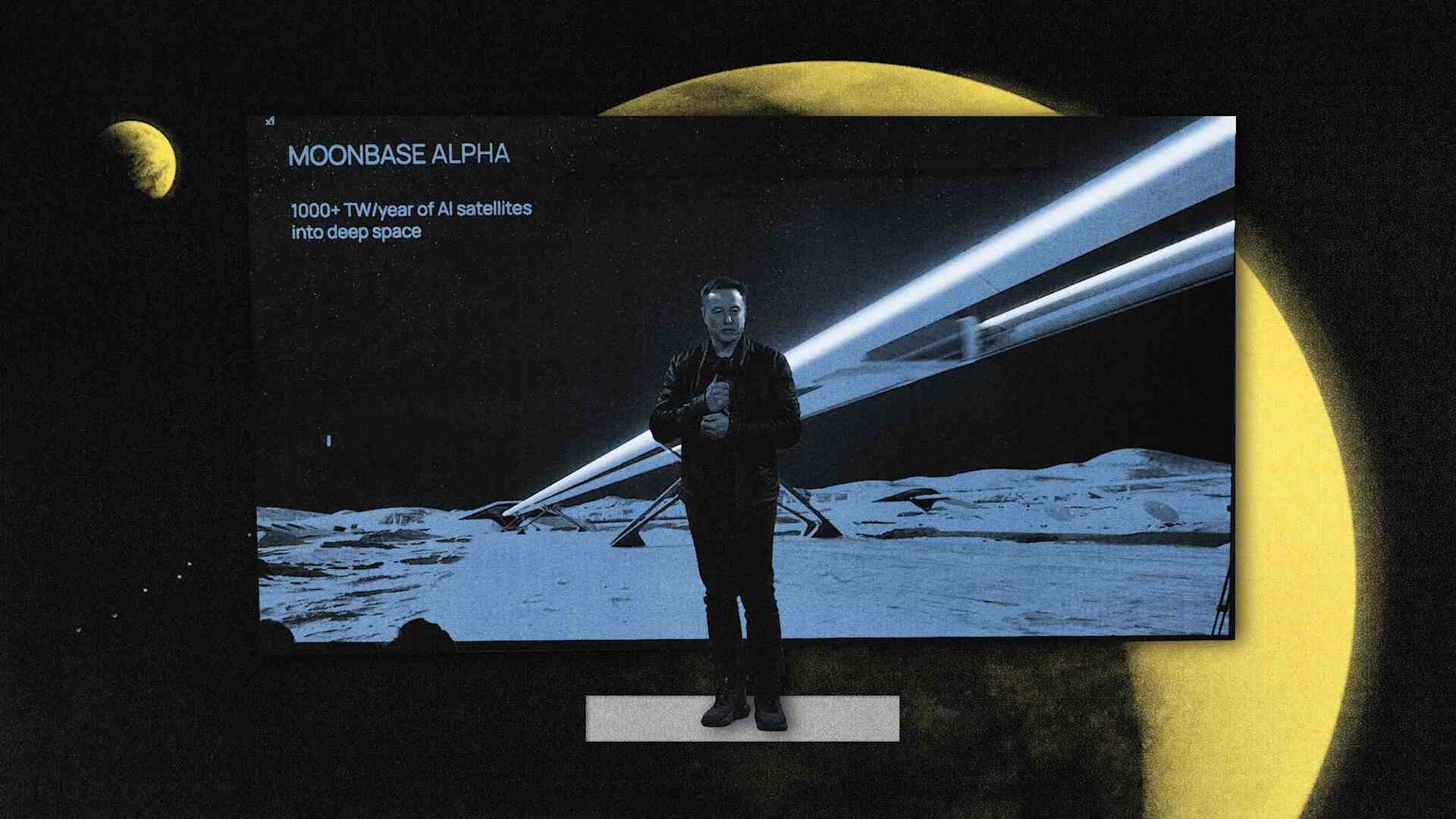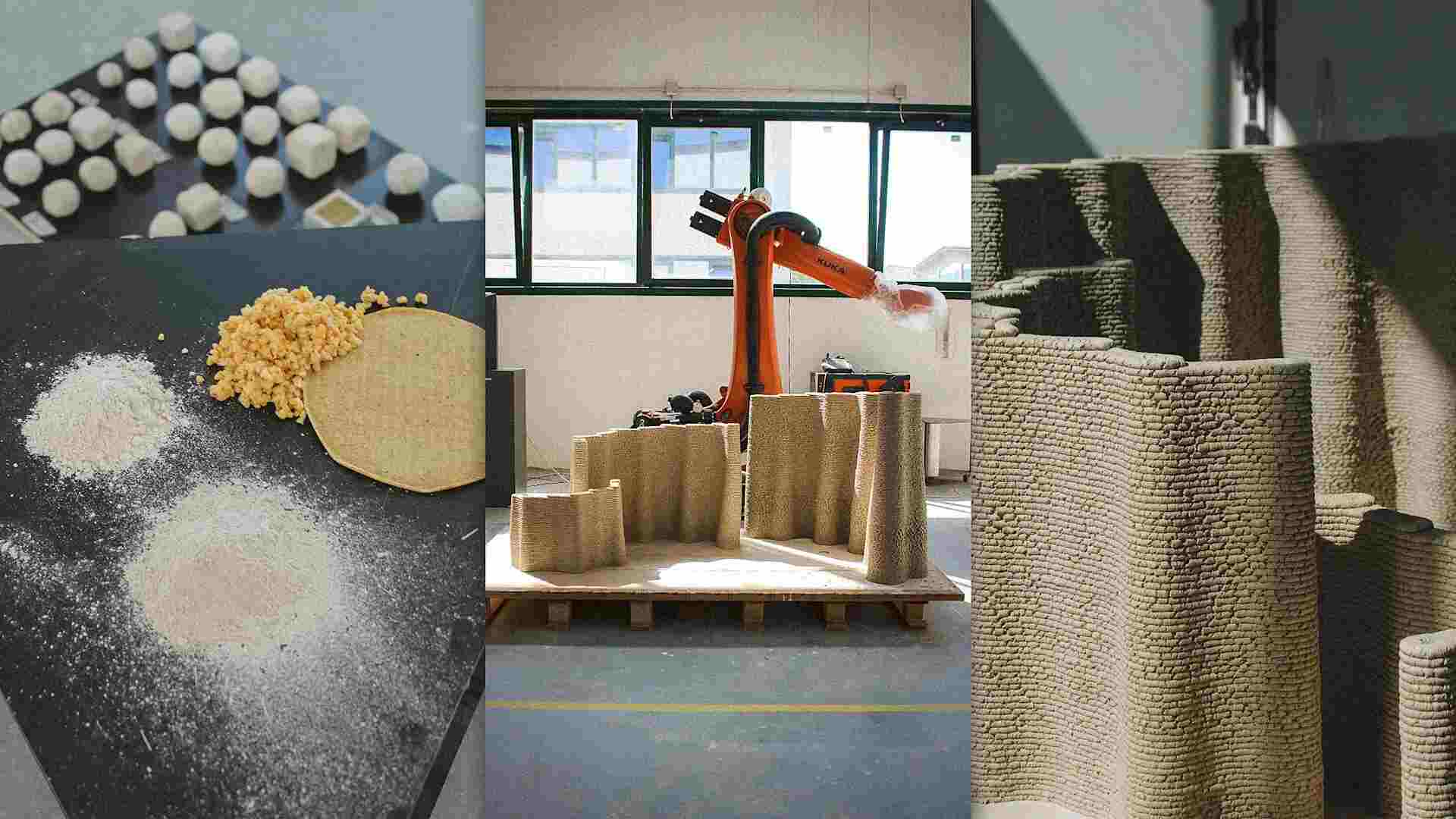- | 12:00 pm
Mandarin Oriental Doha will host the 2025 edition of Innovation by Design
As global tastes evolve, Doha shows how hospitality can be both meaningful and memorable

Design in Doha isn’t an afterthought. It is central to how the city is shaping its cultural and creative identity. This growing emphasis reflects a deliberate investment in design as both a cultural pillar and a marker of global ambition.
In 2024, Qatar Museums, led by Sheikha Al Mayassa bint Hamad bin Khalifa Al Thani, launched the first Design Doha Biennial, an international event spotlighting contemporary design and cross-cultural exchange. Over the course of three months, Msheireb Downtown Doha was transformed by 24 exhibitions, 18 panels, and 11 public programs across 14 venues. The Biennial drew 118,000 visitors, including 4,000 international buyers, positioning Doha as a growing force in global design.
At the center of this growing movement is the Doha Design District in Msheireb. It goes beyond display, functioning as a collaborative space for regional talent and a meeting point for ideas across design, fashion, art, and technology.
Building on this momentum, Fast Company Middle East’s Innovation by Design Summit returns to Doha after a successful debut. The summit convenes designers, entrepreneurs, and business leaders to examine how design is shaping progress across industries, with conversations centered on sustainability, inclusion, and the influence of emerging technologies.
This year’s edition will be held at the Mandarin Oriental, Doha. General Manager Thomas Kinsperger shares how design informs far more than aesthetics in hospitality, shaping guest experience through cultural depth, environmental responsibility, and thoughtful leadership.
CULTURAL EXPERIENCES
Kinsperger highlights Mandarin Oriental, Doha’s focus on creating experiences that thoughtfully and engagingly celebrate Qatar’s cultural identity.
“One of our most recent additions is a guided visit to the Al-Mujadilah Centre and Mosque, a dedicated space for Muslim women to engage in religious, social, and educational dialogue,” he says. The experience, offered exclusively to women, highlights their role in shaping society and preserving Islamic values.
This autumn, the hotel will unveil a collaboration with Liberty London, introducing co-branded suites, bespoke amenities, and curated retail that merge Liberty’s design heritage with Qatari craftsmanship and regional influences.
Looking ahead, the hotel is also supporting the debut of Art Basel Qatar, scheduled for February 2026 at M7 and the Doha Design District in Msheireb. Past initiatives have included partnerships with Dadu, Children’s Museum of Qatar, and galleries like Al Hosh, hosting exhibitions and events that immerse guests in Doha’s contemporary art scene.
“Each of these offerings reflects our commitment to authentic cultural engagement and delivering experiences that are both locally rooted and emotionally resonant,” Kinsperger adds.
CUSTOMER EXPECTATIONS
Meeting the expectations of today’s luxury traveler comes with new challenges. “Elegant rooms and impeccable service are no longer differentiators. They’re the baseline,” says Kinsperger.
What sets a brand apart, he explains, is its ability to create meaningful connections through authenticity, storytelling, and personalization – experiences that leave guests with memories that feel distinctly their own.
At Mandarin Oriental, Doha, storytelling and design serve as tools for cultural immersion, allowing guests to form a deeper connection to Qatari heritage. The hotel focuses on warm, unscripted service, with colleagues encouraged to bring individuality and heart to every interaction.
“Whether it’s a mixologist sharing the story behind a locally inspired cocktail, a concierge curating a one-of-a-kind itinerary, or a room attendant remembering a guest’s unique preferences, it’s the personal touches that resonate,” says Kinsperger.
Modern luxury also includes a renewed focus on wellness and sustainability. Tailored spa treatments, personalized dining, and considered in-room details help guests feel restored both physically and emotionally.
The hotel’s location in Msheireb Downtown offers a built-in advantage. As a global model for sustainable urban living, the district incorporates natural cooling systems, locally sourced materials, and solar energy solutions.
“These values align perfectly with Mandarin Oriental’s approach: luxury that is not only beautiful and memorable but also thoughtful and forward-looking.”
LEADERSHIP PHILOSOPHY
Innovation, Kinsperger believes, begins with strong leadership. Over his 17-year journey with Mandarin Oriental, he has developed a clear and consistent approach rooted in people-first values.
“Great leadership starts with genuine care for our colleagues, our guests, and the communities we serve,” he says.
Kinsperger views leadership as an act of service. For him, it means being present, approachable, and supportive. It’s about removing obstacles, nurturing talent, and creating an environment where creativity and excellence can thrive.
This philosophy aligns closely with Mandarin Oriental’s mission to operate hotels and craft emotional journeys and meaningful experiences unique to every guest.
“In essence, my leadership philosophy is this: take care of your people, and they will take care of your guests. Together, we sustain the legendary service and storytelling that define Mandarin Oriental.”
EVOLUTION OF HOSPITALITY
Looking ahead, Kinsperger sees luxury hospitality entering a decade of rapid transformation. He outlines four emerging trends redefining the guest experience and reshaping the industry’s future.
The first is a move away from large-scale developments toward smaller, more curated properties built around highly personalized experiences. “These hotels will revolve around a few standout anchors, such as chef-led restaurants,” he says, noting that wellness offerings will continue to evolve beyond the conventional spa format.
The second trend is the growing popularity of standalone lifestyle venues and the rise of the ‘bleisure’ segment—travelers blending business with leisure. “Inspired by trends in Europe and North America, we’ll see more freestanding F&B and lifestyle spaces connected to the hotel but operate independently,” he explains.
Third is a stronger demand for immersive storytelling and culturally rooted design. Travelers are seeking authenticity, architecture informed by local landscapes, curated art, desert excursions, and experiences tied to major cultural and sporting events like Formula 1 and regional festivals. A stay becomes more than accommodation; it becomes a cultural journey.
The fourth is sustainability as standard. Developments such as Msheireb Downtown Doha, the Red Sea Project, and NEOM are raising the bar with regenerative design, renewable energy, and a focus on eco-tourism. Guests, Kinsperger notes, will expect tangible sustainability practices, from building materials and energy use to local partnerships and community engagement.
“Just as we tell stories of heritage, we’ll need to tell stories of environmental responsibility,” he says. “The hotels that succeed will combine design, depth, and meaning, delivering a stay as memorable as it is mindful.”
THE ROLE OF DESIGN
As host of Fast Company Middle East’s Innovation by Design Summit and Awards, Mandarin Oriental, Doha reflects a broader belief that design innovation is central to how guests experience, interpret, and remember a place.
“In luxury hospitality, design and innovation must go beyond aesthetics or technology. They need to be purposeful, emotionally resonant, and operationally sound,” says Kinsperger. “A beautifully designed space loses meaning if it’s hard for colleagues to work in or feels unwelcoming to guests.”
At the hotel, design tells a story. Architectural elements inspired by Qatar’s heritage are paired with interiors that invite curiosity and connection. The goal is visual appeal and a deeper sense of place and cultural engagement.
“Innovation, likewise, is most impactful when it supports the guest journey without disrupting the human touch,” Kinsperger adds. He points to features such as smart room technology, sustainable construction, and science-backed wellness programs designed to benefit guests and staff.
He believes the future of hospitality will be shaped by brands that combine locally rooted, functional design with meaningful innovation, people-first service, and a strong commitment to sustainability and well-being.
“It’s not about chasing trends. It’s about creating spaces and experiences that are intuitive, enduring, and emotionally resonant,” he says. “That’s why we’re proud to host the Innovation by Design Summit, to celebrate design that enhances lives, respects culture, and defines what authentic luxury truly means.”







































